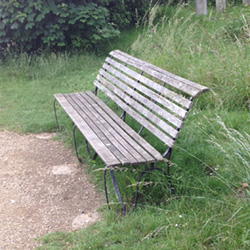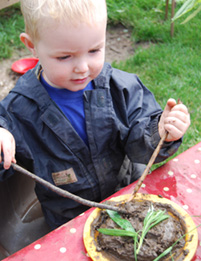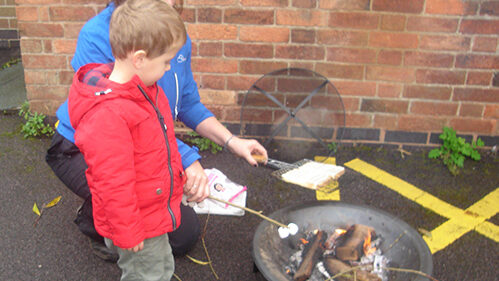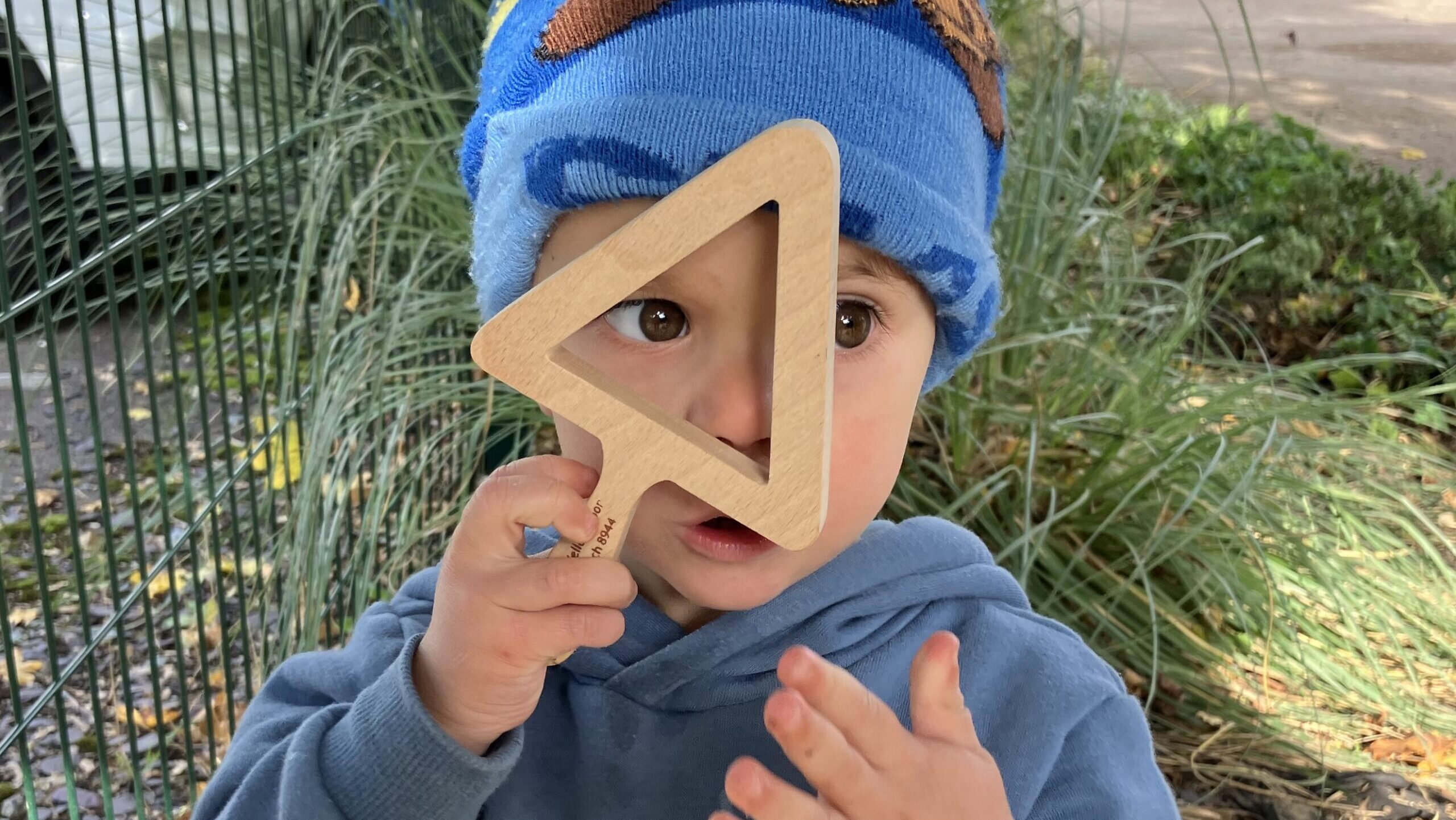Every outside classroom is alive with stories just waiting for our children to become part of the drama.If we pause in the outdoor spaces of our contexts and look closely we will notice how they invite us and our children to become part of their stories.
Have you ever stopped to think of the dramas taking place in your setting’s outdoor space? Just like EastEnders or Downton Abbey, there is so much going on, even excluding the children’s dilemmas:
- The ants at the beck and call of their queen
- The lone wasp ready for a fight
- The gossiping sparrows
- The fearful hedgehog.
Perhaps this is what the eagle teaches us about open-air learning. We talk about people being eagle eyed, having the ability to look closely and notice things that others miss. If we pause in the outdoor spaces of our contexts and look closely we will notice how they invite us and our children to become part of their stories.
Here are some ideas to help you to pause and really look at your outdoor space throughout the seasons:

Spring
Admire the flowering bulbs
Make spring perfume
Sit in the sunshine
Go on a bug hunt
Summer
Listen to the birdsong
Make and share a salad
Observe ice melting
Cook mud pies in the sunshine.


Autumn
Make a mud café and market stall.
Plant some bulbs for the spring
Crunch handfuls of leaves
Eat seasonal produce
Winter
Tell stories round a firepit
Toast marshmallows
Make a snow kitchen
Create some snow angels.

What can the hippo teach us about our outdoor classrooms? The hippo loves nothing better than to wallow. It loves to do so in mud and throws itself into it with joy! If you want some ideas for how to wallow in the fun of mud, try Mud Kitchens and Beyond.
The hippo also teaches us to grasp with enthusiasm all that our outdoor spaces offer us if we look like the eagle. Some online resources to help with this include Mindstretchers and Green Acorns.
As we look at our outdoor spaces may we be inspired by the eagle and the hippopotamus to see them afresh and wallow in what they offer. As the writer Marcel Proust said, ‘The real voyage of discovery consists not in seeking new landscapes, but in having new eyes.’

